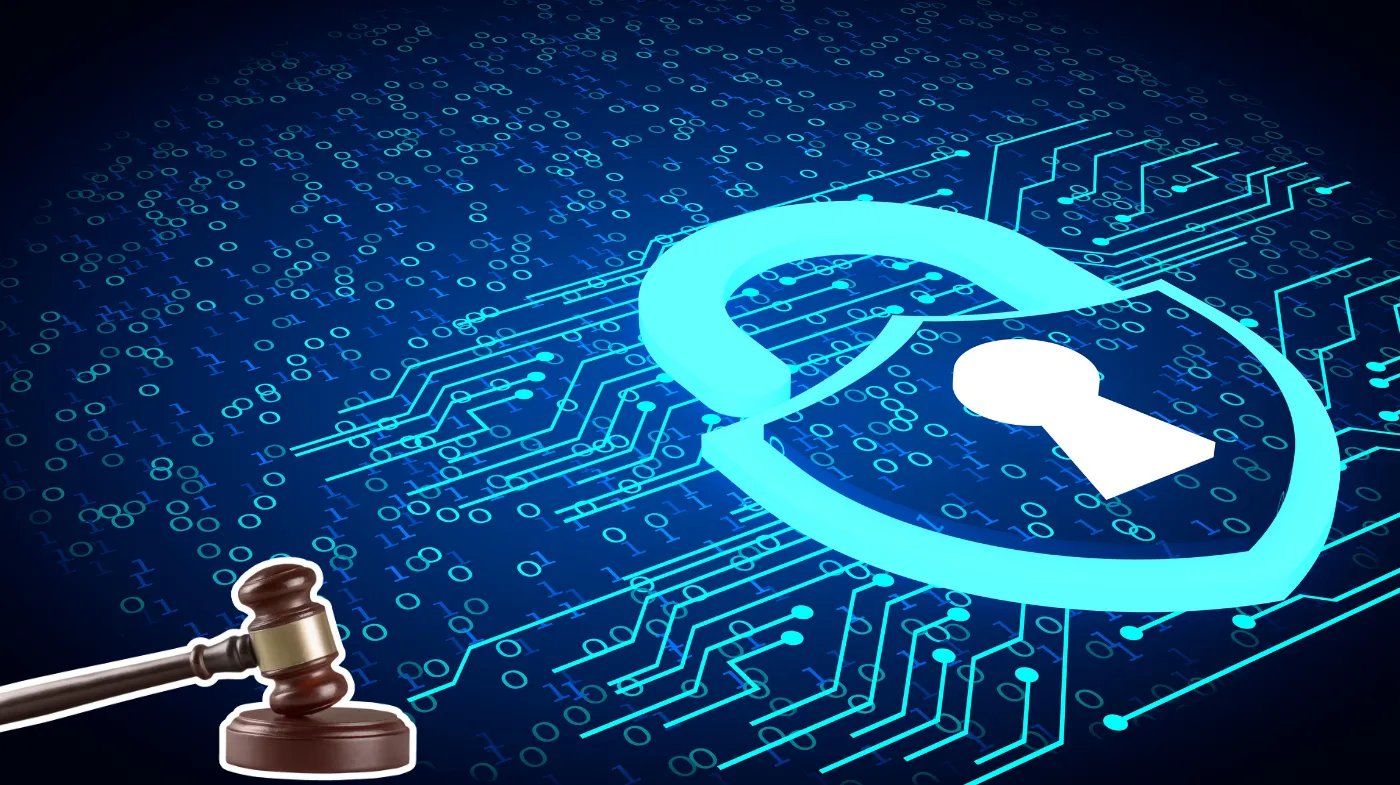
Data breaches have become a growing threat to personal and business security. You may wonder: Can you legally pursue compensation when your personal information is compromised? Yes, you can sue for data protection breaches under specific circumstances.
To succeed, you must prove that the organization failed to protect your data, a breach occurred, and you suffered actual damages like financial loss or psychological distress.
This article explores the legal requirements, types of compensation available, common breach causes, and essential protection strategies to safeguard your digital assets.
Understanding Data Protection Breach Laws
Modern data protection regulations provide clear frameworks for pursuing legal action when your personal information is compromised.
The UK General Data Protection Regulation (UK GDPR) and Data Protection Act 2018 establish strict obligations for organizations handling personal data. Data controllers decide how and why personal data is processed, while data processors handle the actual processing tasks.
Both parties face legal responsibilities to protect your information from unauthorized access, loss, or misuse. A personal data breach occurs when information is accidentally or unlawfully altered, lost, disclosed without authorization, destroyed, or accessed.
Legal Requirements for Filing a Lawsuit
Successfully suing for a data protection breach requires meeting three specific criteria established under Article 82 of the UK GDPR.
First, you must prove the data controller or processor failed to comply with data protection laws. This includes inadequate security measures, improper data handling, or insufficient breach notification procedures.
Second, their failure must have directly caused a personal data breach affecting your information. The connection between negligence and the security incident must be clearly established.
Third, you must demonstrate actual damage from the breach. This includes psychological distress, financial losses, or both resulting from the compromised data.
Types of Compensable Damages
Courts recognize various forms of harm arising from data breaches.
Financial losses include unauthorized transactions, identity theft costs, or credit monitoring expenses. Psychological distress encompasses anxiety, embarrassment, or emotional harm caused by the privacy violation.
Even without a financial impact, significant emotional distress can justify compensation. Reputational damage may occur when sensitive information is disclosed publicly.
Loss of confidentiality affects personal or professional relationships when private data becomes accessible to unauthorized parties.
Common Causes of Data Protection Breaches
Understanding breach origins helps identify potential liability and prevention strategies.
Cyberattacks and Malware
Cyberattacks represent the most sophisticated threat, often targeting organizations with valuable customer databases. Malware infiltrates systems through vulnerabilities in applications or operating systems, while ransomware encrypts critical files and demands payment for decryption.
Human Error and Social Engineering
Human error accounts for a significant portion of all data breaches. This includes misdirected emails, improper data disposal, or accidental system access. Phishing attacks manipulate people into revealing sensitive information through deceptive emails or messages.
Weak Password Practices
Poor password security contributes to many data breaches. Email hacking poses particular risks when criminals gain unauthorized access to accounts, potentially accessing sensitive communications and financial information.
Using a strong password generator online creates complex combinations that resist common attack methods. Frequent password creation mistakes include password reuse across accounts and incorporating easily guessable personal information.
Insider Threats
Authorized individuals may deliberately misuse their access for personal gain. Malicious insider attacks can be costly for organizations, while many insider incidents involve well-meaning employees acting through negligence or lack of awareness.
Technical Vulnerabilities
Outdated software, poor firewalls, and improperly configured cloud services create openings for hackers. DNS attacks exploit network vulnerabilities, allowing criminals to intercept sensitive information and bypass security measures.
The Role of Password Security
Weak password practices significantly increase breach risks.
Using a strong password generator online creates complex, unpredictable combinations that resist common attack methods. These tools eliminate human bias toward memorable but predictable passwords.
Frequent password creation mistakes include reusing identical passwords across multiple accounts, incorporating easily guessable personal information, or making simple character substitutions. These patterns make accounts vulnerable to automated attacks.
Password recycling affects 52% of users according to Google research, with 13% using identical passwords across all accounts.
Legal Consequences for Organizations

Organizations face severe penalties for data protection violations.
The Information Commissioner’s Office (ICO) can impose fines up to £17.5 million or 4% of global annual turnover, whichever is higher. Criminal prosecution may occur in extreme cases, with company directors and officers facing charges under the Data Protection Act 2018.
Unlawfully obtaining or disclosing personal data without consent constitutes a criminal offense. Operational sanctions include enforcement notices requiring specific remedial actions, processing suspensions, or formal reprimands.
Civil Litigation Risks
Beyond regulatory penalties, organizations face individual lawsuits from affected data subjects.
These civil actions can result in substantial compensation awards for victims. Class action lawsuits may emerge when breaches affect numerous individuals.
Combined claims can generate significant financial exposure for negligent organizations. Reputational damage often exceeds direct financial costs, affecting customer trust and market position.
Preventive Measures and Best Practices
Organizations must implement comprehensive security measures to prevent breaches and reduce legal liability.
Regular security audits identify vulnerabilities before criminals exploit them. Employee training addresses human error risks by educating staff about proper data handling, phishing recognition, and security protocols.
Well-trained employees serve as the first line of defense against cyber threats. Multi-factor authentication adds security layers beyond passwords alone.
Even if passwords are compromised, additional verification steps prevent unauthorized access.
Personal Protection Strategies
Individuals can reduce their exposure to data breaches through proactive measures.
Using a password strength evaluator helps identify weak credentials requiring updates. Password managers store unique, complex passwords for each account, eliminating the need to remember multiple credentials.
These tools generate strong passwords automatically and encrypt stored information. Regular monitoring of financial accounts and credit reports enables early detection of unauthorized activity.
Prompt action can limit damage from identity theft or fraudulent transactions.
Compensation Calculation Methods
Courts consider multiple factors when determining data breach compensation amounts.
Severity of the breach affects award calculations, with larger-scale incidents typically generating higher payments. Individual impact varies significantly between victims.
Someone experiencing identity theft and financial fraud may receive substantially more compensation than someone whose information was merely exposed. Organizational negligence influences awards, with grossly negligent companies facing higher penalties.
Frequently Asked Questions
How long do I have to file a data breach lawsuit?
Limitation periods vary by jurisdiction, but most data protection claims must be filed within six years of discovering the breach. Some jurisdictions impose shorter deadlines, making prompt action essential.
What evidence do I need for a successful claim?
Documentation proving the breach occurred, evidence of resulting damages, and records showing the organization’s negligence are crucial. Keep detailed records of financial losses, emotional distress, and remedial actions taken.
Can I claim compensation without financial losses?
Yes, psychological distress alone can justify compensation under GDPR provisions. Courts recognize that privacy violations cause genuine harm even without a direct financial impact.
Do I need a lawyer for data breach claims?
While not legally required, legal representation significantly improves success chances. Data protection law involves complex technical and legal issues that experienced attorneys navigate more effectively.
Taking Control of Your Digital Security
Data protection breaches pose serious threats to personal privacy and financial security. Understanding your legal rights empowers you to seek appropriate compensation when organizations fail to protect your information.
The three-part test for successful claims requires proving organizational negligence, breach of contract, and resulting damages. While pursuing litigation remains an option, implementing strong preventive measures through robust password practices provides the best protection against future incidents.
